By Valerie Milano
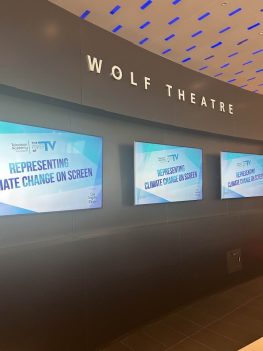 North Hollywood, CA (The Hollywood Times) 4/27/23 – Presented and hosted by the Television Academy Foundation on April 18th, 2023, panelists Scott Burns, Anna Jane Joyner, Meredith Milton, and Peter Saji conversed with moderator Rosanna Xia on climate representation in the media, and discussed the ways writers can center climate change stories that better reflect the urgency of the worldwide crisis.
North Hollywood, CA (The Hollywood Times) 4/27/23 – Presented and hosted by the Television Academy Foundation on April 18th, 2023, panelists Scott Burns, Anna Jane Joyner, Meredith Milton, and Peter Saji conversed with moderator Rosanna Xia on climate representation in the media, and discussed the ways writers can center climate change stories that better reflect the urgency of the worldwide crisis.
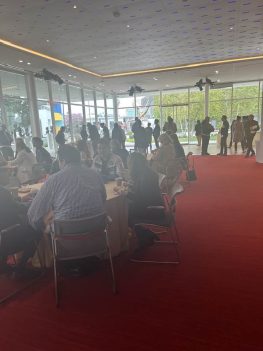 Founder and CEO of Good Energy, Anna Jane Joyner recently conducted a USC study that shows there were more than 37,000 scripted TV and films over a 4-year period between 2016 to 2020. Of this substantial number, only a staggering number less than 0.6% mention climate change; a plethora of life changing missed opportunities. Joyner expounds on the study, “It definitely confirmed what we suspected anecdotally, that climate was virtually non-existent in our scripted television and film shows, which was a big problem because basically the experience of viewers is that the world that they see in television and film isn’t the world that we’re living in and that divorce kind of becomes stranger and stranger each year.”
Founder and CEO of Good Energy, Anna Jane Joyner recently conducted a USC study that shows there were more than 37,000 scripted TV and films over a 4-year period between 2016 to 2020. Of this substantial number, only a staggering number less than 0.6% mention climate change; a plethora of life changing missed opportunities. Joyner expounds on the study, “It definitely confirmed what we suspected anecdotally, that climate was virtually non-existent in our scripted television and film shows, which was a big problem because basically the experience of viewers is that the world that they see in television and film isn’t the world that we’re living in and that divorce kind of becomes stranger and stranger each year.”
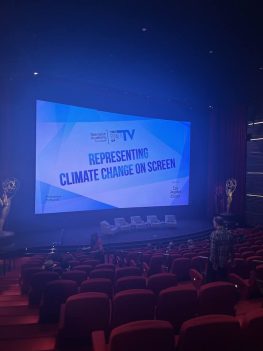 But why have writers seemingly put themselves in a box in a way that suggests we will never see climate change centered television and film on a larger scale? If art is to reflect reality, where is the hesitation coming from? Creative Director of NRDC’s Rewrite the Future Meredith Milton tackles the question, “The business to some extent, not entirely, thankfully, has kind of–we’re a group of storytellers who convinced ourselves of this narrative that climate change is boring, and divisive, or preachy, or uncommercial, all of these kinds of things. And I think the reality is that it doesn’t have to be. We’re all humans who are confronting this thing together, individually, collectively, trying to figure out how to grapple with it. I think sometimes for storytellers there can be this mental block because you don’t even necessarily know in your own life what to do about [climate change], so then how do you tell a story about it? How do you process it into this thing, which I think people have this idea that stories need to be tied up in a bow, that there needs to be a clear takeaway, or a way to package it all up and give it a happily ever after. There’s no happily ever after to this one. I think that can present a lot of challenges. But I think that interestingly, if you look at the messy parts of climate change, the complicated parts of humanity, and all the weird things that we’ve done and how we got here, that’s where the stories are.”
But why have writers seemingly put themselves in a box in a way that suggests we will never see climate change centered television and film on a larger scale? If art is to reflect reality, where is the hesitation coming from? Creative Director of NRDC’s Rewrite the Future Meredith Milton tackles the question, “The business to some extent, not entirely, thankfully, has kind of–we’re a group of storytellers who convinced ourselves of this narrative that climate change is boring, and divisive, or preachy, or uncommercial, all of these kinds of things. And I think the reality is that it doesn’t have to be. We’re all humans who are confronting this thing together, individually, collectively, trying to figure out how to grapple with it. I think sometimes for storytellers there can be this mental block because you don’t even necessarily know in your own life what to do about [climate change], so then how do you tell a story about it? How do you process it into this thing, which I think people have this idea that stories need to be tied up in a bow, that there needs to be a clear takeaway, or a way to package it all up and give it a happily ever after. There’s no happily ever after to this one. I think that can present a lot of challenges. But I think that interestingly, if you look at the messy parts of climate change, the complicated parts of humanity, and all the weird things that we’ve done and how we got here, that’s where the stories are.”
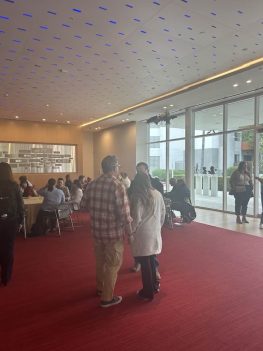 Award-winning screenwriter, director producer and playwright Scott Burns exquisitely identified that the stories of climate change are in the ‘messy middle’ and has created the hit Apple TV Plus show Extrapolations that dissects the intersections of climate change and love, faith, work and family. Burns mentions, “I thought, what if I could take my writing career and marry it with my passion for this issue? I had this notion that, if a story is a great story, then it should work anywhere in time; that’s why we watch period pieces. And so it’s interesting to me that we have 20 hospital shows and 20 lawyer shows and we don’t have any shows that really dealt primarily with climate and made that front and center. If you look at our show, we have episodes that are built like thrillers. We have a show that’s sort of like the movie Fail Safe. We have one that’s like Midnight Run. We have a lot of different shows that are really extrapolations of genre. So that’s sort of where our show came from.”
Award-winning screenwriter, director producer and playwright Scott Burns exquisitely identified that the stories of climate change are in the ‘messy middle’ and has created the hit Apple TV Plus show Extrapolations that dissects the intersections of climate change and love, faith, work and family. Burns mentions, “I thought, what if I could take my writing career and marry it with my passion for this issue? I had this notion that, if a story is a great story, then it should work anywhere in time; that’s why we watch period pieces. And so it’s interesting to me that we have 20 hospital shows and 20 lawyer shows and we don’t have any shows that really dealt primarily with climate and made that front and center. If you look at our show, we have episodes that are built like thrillers. We have a show that’s sort of like the movie Fail Safe. We have one that’s like Midnight Run. We have a lot of different shows that are really extrapolations of genre. So that’s sort of where our show came from.”
 While Extrapolations has certainly paved the way for more authentic storytelling centering the climate issue, there are still many social hurdles to overcome with getting more creatives on board to lend a hand in the fight against climate change. Writer/Director Peter Saji states, “This issue unfortunately has become very partisan. And so there’s a segment of the population that I think sees us as preachy. For me, that’s the biggest hurdle. The way that I think you can overcome that is by caring about the issue enough so that you are not preaching, and so that then it’s ultimately just a really good story.”
While Extrapolations has certainly paved the way for more authentic storytelling centering the climate issue, there are still many social hurdles to overcome with getting more creatives on board to lend a hand in the fight against climate change. Writer/Director Peter Saji states, “This issue unfortunately has become very partisan. And so there’s a segment of the population that I think sees us as preachy. For me, that’s the biggest hurdle. The way that I think you can overcome that is by caring about the issue enough so that you are not preaching, and so that then it’s ultimately just a really good story.”
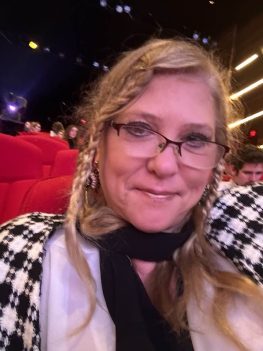 Television and film writers, consider this a call to action; continue to delve into the untold stories of climate change!
Television and film writers, consider this a call to action; continue to delve into the untold stories of climate change!




